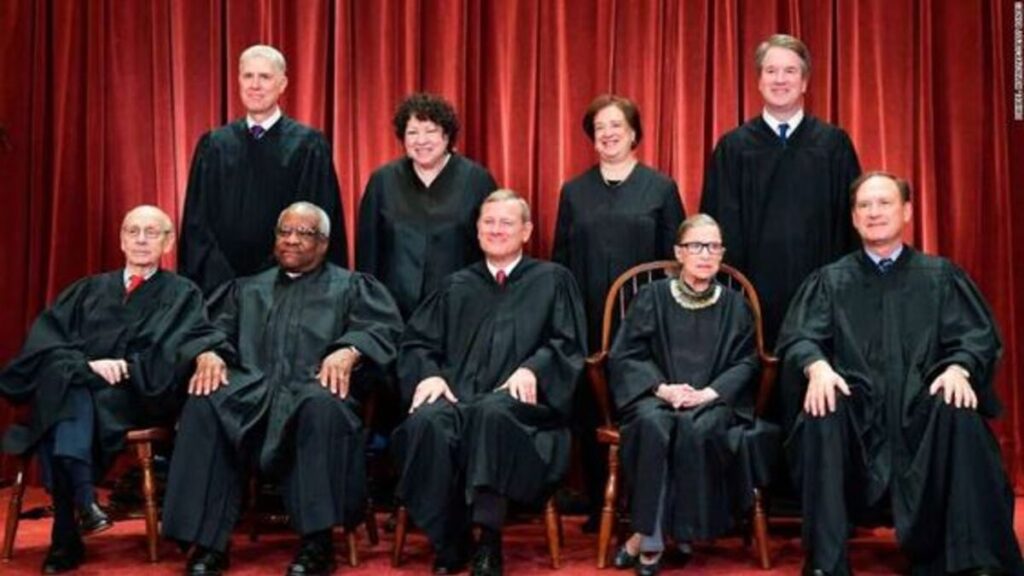The Supreme Court of the United States of America has made a decision that may affect many immigrants seeking asylum in the country. During a recent hearing, the court’s justices voted on a case of immigrants who were issued deportation orders after they missed their court hearings.
The immigrants challenged their deportation orders, stating that it was unfair to them because they did not receive a Notice To Appear (NTA) from the court, and those who got a notice weren’t given the proper time and date to show up in court.
Therefore, they believe that their deportation orders are unfair and should not stand. However, the Supreme Court has ruled to block immigrants, now and in the future, from challenging their deportation orders regardless of the circumstances surrounding it. This ruling came after a close 5-4 vote by the Supreme Court Justices after the majority chose the side of the federal government.
The decision showed that immigrants can now be issued deportation orders “in absentia” if they are not present at their hearing if the government has provided a notice at some point in time. The three immigrants who challenged their deportation orders were three separate cases, but they were rolled into one before it was brought before the Supreme Court.
ALSO READ: Supreme Court Upholds Trump’s Immunity in Election Interference Case
Varinder Singh, Esmelis Campos-Chaves, and Raul Daniel Mendez-Colínwere were the three immigrants who were hoping that the justices would rescind their deportation orders and allow them to stay in the U.S. Before the case got to the U.S. Supreme Court, it was first taken to the Fifth Circuit Court of Appeals. However, the court denied one of the petitions, while the Ninth Circuit Court of Appeals granted the other two petitions.
Therefore, the Supreme Court justices were the ones who had to make the final decision on their cases. Sadly, it did not go how the immigrants hoped that it would. The 5-4 vote consisted of the winning majority Justices Samuel Alito, John Roberts, Brett Kavanaugh, Amy Coney Barrett, and Clarence Thomas.
POLL—Should the Government Increase Taxes on the Wealthy To Reduce Economic Inequality?
Those who opposed the ruling were Justices Neil Gorsuch, Sonia Sotomayor, Elena Kagan, and Ketanji Brown Jackson. Justice Alito gave the reason for the majority decision and explained that while the facts in each case may vary, they are still quite similar because they have the same key details.
The government did not provide these “aliens” with any NTA documents but had given each of them a notice to specify the place and time of their removal hearing. Therefore, Alito believes that this serves as a form of notice, and they should not have missed their hearings. For years, foreigners have been described as “aliens” in the U.S. code, causing a lot of debate on the term.
WATCH: The World’s Second Most Populous Country Battles Population “Doom Loop”
Most foreigners and immigrant advocates believe that the term is degrading and should not be used anymore. Now, the three immigrants can no longer challenge their deportation orders, and others after them have to follow the same rules. Advocates and the other four supporting justices do not believe this is the right thing to do and hope to continue to fight in the future.
You Might Also Like:
Kylie Jenner in Tears After Getting Nasty Comments on Her Looks
“Stupider Than I Thought,” Mary Trump Slams Elon Musk
DeSantis Declares State of Emergency in Florida Amid Torrential Downpour
Texas Tourist Dies in Hot Tub Electrocution at a Mexican Resort
Ruth Jones Accuses Gwyneth Paltrow of Treating Her Like a “Nothing” on Movie Set
